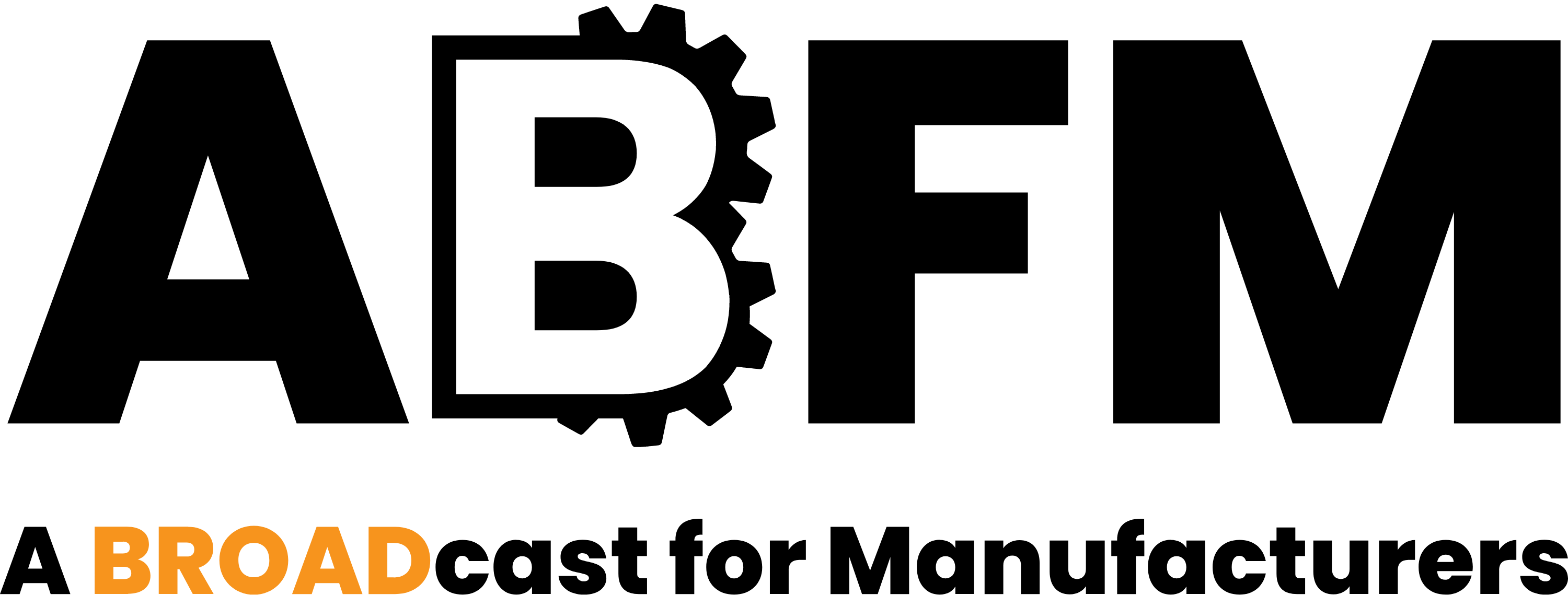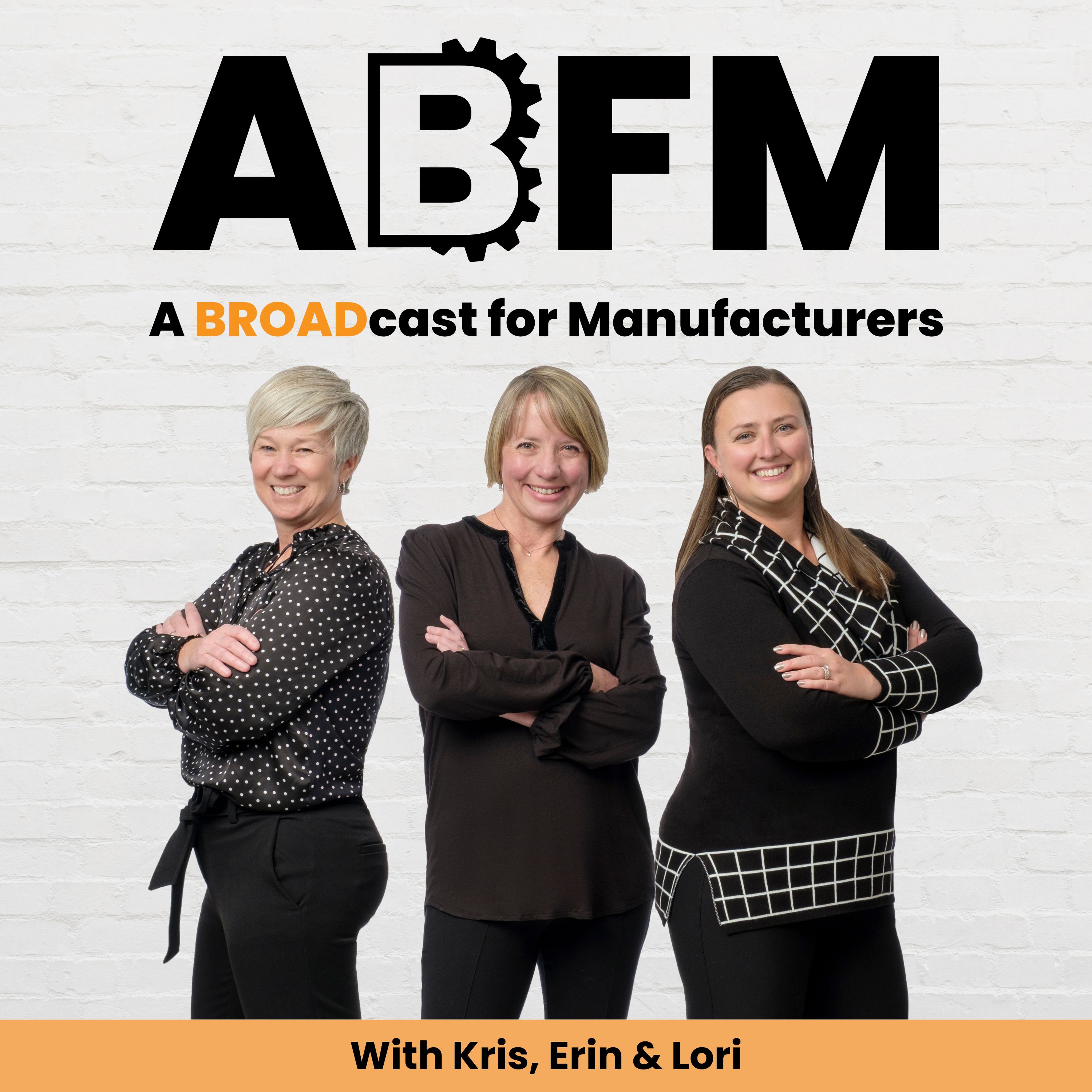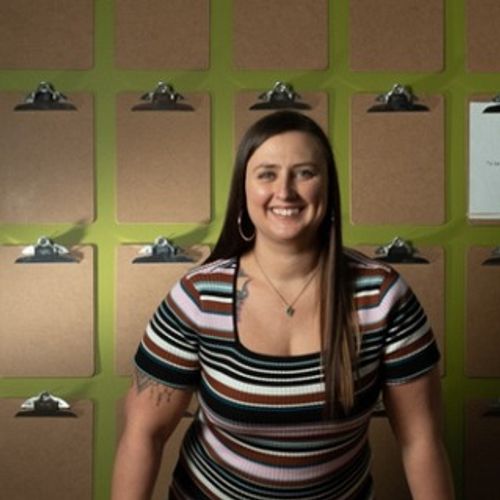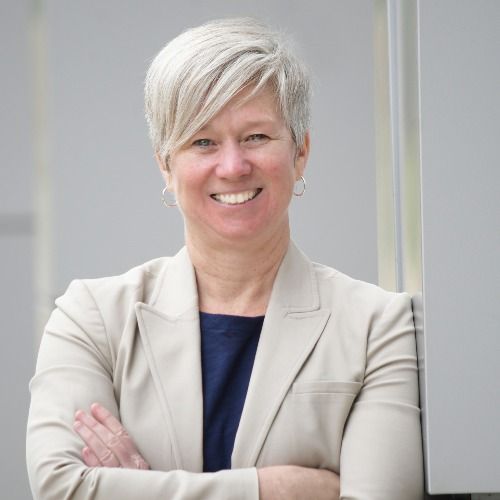Episode 77
77: How Experience Shapes Entrepreneurship- with Vivek Joshi
Sponsored By AdCirrus ERP, your trusted partner for cloud ERP solutions. Learn more at adcirruserp.com.
Meet Vivek Joshi
Vivek is the founder and CEO of Entytle, a provider of Installed Base Intelligence solutions to Original Equipment Manufacturers. He has extensive leadership experience in various industries, spanning diversified industrial manufacturing, healthcare, high technology and private equity. He previously was founder and CEO of LumaSense Technologies Inc., an Operating Partner at Shah Capital Partners, and Senior Vice President of Marketing for Sun Services, a $3.6 billion division of Sun Microsystems. He also served at Webvan as Vice-President of Program Operation; at GE Transportation as General Manager, Off Highway/Transit Systems; at GE Corporate as Manager of Corporate Initiatives; at Booz Allen & Hamilton as a Management Consultant; and at Johnson & Johnson in an operations role. Vivek has an M.S. in Chemical Engineering and an M.B.A. from the Darden School of Business at the University of Virginia, Charlottesville and a B.Tech in Chemical Engineering from IIT, Mumbai.
Connect with Vivek!
Links
Highlights
00:00 Fun Team Question: What's Your Career Theme Song?
01:55 Introducing Our Guest: Vivek Joshi
04:58 Vivek's Journey in Manufacturing
08:50 The Impact of Key Mentors
11:10 Why Entrepreneurship?
13:03 The Importance of Aftermarket Services
16:28 I Just Learned That: Fascinating Insights
21:31 Addressing the Labor Crisis in Manufacturing
24:49 Conclusion and Contact Information
Connect with the Broads!
Connect with Lori on LinkedIn and visit www.keystoneclick.com for your strategic digital marketing needs!
Connect with Kris on LinkedIn and visit www.genalpha.com for OEM and aftermarket digital solutions!
Connect with Erin on LinkedIn!
Transcript
Vivek Joshi
Lori Highby: [:Kris Harrington: Oh, oh my goodness. That is a great question. Um, my career had theme song. How much time did they have to think about that question?
Lori Highby: I mean, these are just quick, quick rapid fire.
So [:Kris Harrington: Yeah. I love both of those for you and I, I, I think that's really fun.
Um, I wish I had. Ask Chat GPT before. All I'm thinking about is, uh, my favorite songs, but that doesn't have anything to do with my career. I'm gonna answer that on a future. Uh,
Lori Highby: okay. I I'm
Kris Harrington: saving that for the next one. Tabling the answer. Alright. Yes. I'm gotta think about it. But I, I'll think about it and not ask Chat GPT and I'll do the same thing.
e our guest. Um, this one's, [:Uh, and what's really nice is that, uh, you know, Lori and I are here today as two entrepreneurs and Vivek Joshi is with us today, and he is also an entrepreneur. So let me tell you a little bit about Vivek. Uh, Vivek is the founder and CEO of Entytle. A provider of installed base intelligence solutions to original equipment manufacturers.
Marketing for Sun Services, [:He also served at Webvan as Vice President of program operation at ge Transportation as general manager off Highway transit systems. At GE Corporate as manager of corporate initiatives at Booze Allen and Hamilton as a management consultant and at Johnson and Johnson in in operations role, Vivek has an MS in chemical engineering and an MBA from the Darden School of Business at the University of Virginia, uh, and a BTech in chemical engineering from, uh.
Is it IIT Mumbai. Ah, perfect. Vivek, you've got a ton of experience. Um, it's really a pleasure for you to be here with us today.
I would move to a different [:Okay. That's exactly what they were saying. Different jobs. Far too many jobs I would lead in my career, but. Know what those experiences gave me is an incredible breadth of experience from, like I said, manufacturing operations to high level consulting, to really hard manufacturing, a G and global expansion, and so on and so forth.
So while it looks terrible, which is like, okay, Vivek, you seem like you couldn't hold a job, it is actually a great experience for me. So thanks for having me today.
Kris Harrington: Yeah, it's a, it's great to have you, I think for the, you know, the generation that has come into the workforce, of course, millennials and the Gen Z, that's, uh, the way it works today.
So, um, that's pretty common. If we go back to our parents generation, it is of course our parents. Who are like, what are you doing leaving this great company? Right, exactly. They don't understand that we have this, uh, fervor to learn and keep trying new things. And, and that's right. Certainly, you, you got that experience.
So I'm [:Vivek Joshi: Yeah, so it's actually a great question because I go back to my business school days when I was at the University of Virginia at Darden School. Uh, I really was, I I really loved the operations classes, I loved the finance classes and, you know, less so marketing Lori, right?
But even though won the bigger marketing at some point in my life, uh, and it occurred to me that, you know, the, the, the two things in that I was really interested in the making stuff or selling it. At that time, I wasn't quite sure. I wouldn't be the salesperson coming outta business school, but I said, look, I can go be a manufacturing person or figure out how things are made and built and you know, whatever.
job, then I wound up being a [:I mean, I just loved all aspects of manufacturing since then. And so. With the exception of this little diversion of Web van back in the.com bubble days, I've pretty much stayed true to this whole manufacturing idea because I still, I still think it's a lot of fun. So that's kind of what led me into manufacturing and I, and eventually when I started Entytle, assuming I, I would stick to what I knew and what I learned.
Kris Harrington: Yeah. So I'm curious if there is a, a favorite thing that. You made or the companies that you worked for made, was there one product line that really stands out in your history?
Vivek Joshi: Yeah. You know, it's actually funny you asked that question. So when I was a General Electric, uh, I was in Erie, Pennsylvania, and I think this, this goes back to yours and my similar roots.
your former lawyers one time.[:To me, what is fascinating was like we sold these massive ac dc motors and drive systems and alternators to the guys who made these 300 ton trucks, electric trucks. And that was, to me, the most fun. I mean, I was going to the mines in Chile and, you know, Southwest Arizona and Australia, and this is just, this is like driving a house, right?
When you, when you drove one of those trucks. And to me that was probably the most, uh, interesting and fun product. I, I was a real associate with. I mean, there's a lot of other stuff, but that to me was the, the coolest stuff.
Kris Harrington: Yeah. Love that. Well, you're speaking to us because I know, uh, Lori has a little history with her father, and then of course my history at Bucyrus and the mining industry.
I still think mining products are the coolest. I mean, they're just so large. They're so. And you know, most people don't understand the scale until they're standing in front of it and really comprehend. Exactly,
Vivek Joshi: exactly. Yeah. So that was my favorite product back then. Yeah. Love
Lori Highby: that story. [:Right. Right. And it just. Obsessed with that, so.
Vivek Joshi: Yeah.
This episode is brought to you by AsCirrus ERP, your trusted partner for cloud ERP solutions. Learn more at adcirruserp.com.
Lori Highby: But, um, yeah. I love your question, Kris. That was a good one. It kind of piqued my question here is you've had so many unique, fascinating experiences and all these different organizations and, and you've traveled. Um, what person or which person has had the biggest influence on your career?
ral Electric back in the mid [:And then there was a, typically you left consulting and kind of get an industry and for whatever reason I wound up choosing g uh, which weirdly enough was the least attractive financial offer. But somehow those people is who I connected with. And specifically there was a senior VP OG who hired me into this corporate group, a guy called Gary Reiner.
And uh, that to me was my pivotal. Decision, I think career wise that I made because it just did a bunch of things for me that, candidly to this day, 20 years after left G 25 years after left, g, I still have those memories and experiences and, and learnings that are still embedded in my brain, right? And so I go back to aid joining GE, specifically because of Gary, and then eventually another gentleman called John Rice, who wound up being the vice chairman of the G at some point.
y best decision I made in my [:Lori Highby: Well, no, I mean, you've got, you've built something amazing here too, so that wouldn't have happened.
Right. This is all, that's, it's all part of the path, right? There's, it is all part of the, that's
Vivek Joshi: exactly right.
Lori Highby: Yeah. That's right. That's awesome.
Vivek Joshi: But that is absolutely, to me, I, it is very simple answer for that one.
Kris Harrington: You know, it's amazing the people you meet and how they impact you even later in your career and how small the world is, you know, uh, and how the people that you've worked with in the past come back to you.
I'll still remember somebody very early in my professional career said. If you don't make money for a company or you don't save a company money, what are you doing? And I still have those words ring in my mind sometimes when I'm thinking about what are my priorities today? Right? And I share that story because I think it can be valuable for others.
ainly been very valuable for [:Vivek Joshi: Yeah. Kris, you're an entrepreneur. You're an entrepreneur. You know, there are dark days when we question these choices, right. Uh, about like maybe getting a bad paycheck from somebody with a good idea. Yeah. But I, I think it comes down to having a desire to. Gotta create an impact that you couldn't do in a big company, right?
any has started with Entytle [:I kind of thought about an idea. I had this thing, I went to somebody and actually made it realize, I realized the vision of that idea. You know, you, uh, the idea was to start buying a bunch of small. Uh, similar situated sensor and instrumentation companies, but literally went from a 15 page deck to a $85 million company over the following five, six years.
he and I sat down on Jan six,:Right. And from there, you know, you know, 10 years, 11 years later, we are, you know, in a, in a different place. And that's, it's hard to see that happen in a, in a large company. Mm-hmm. You know, so that's kind of reason.
that helped you? Choose the [:Is there something you wanna share with other manufacturers of why you, because, 'cause you have a real big focus on that as well.
Vivek Joshi: Totally, totally. And I think it goes back to, uh, when you asked a question, what was your, who was your, uh, most, uh, impactful manager or mm-hmm. Person who you, the g decision was in many ways, really critical to my future in the sense that.
When I joined the corporate group I was in leading a couple of different initiatives, and that's when I got to see up front and close this whole notion of services. This was in the mid nineties, uh, Kris and Lori, those are the, what I would call the heyday in G. Right? Jack wel was ascendant. He was like the mm-hmm, mm-hmm.
Manager of the century, blah, blah, blah. And he was really making it a big deal to go after services. And I couldn't figure out what the service thing was, right. And I got into it and I was like, wow, this is amazing. All these businesses we had and power systems and locomotives and medical and Milwaukee and blah, blah, blah.
y had these things called an [:And I say, wow, this is interesting. And that always stuck in my head. To the point where when I went to Sound Microsystems, I was a VP of strategy and planning, and the job I took was to go be the senior VP of marketing for services. And I remember the, one of the senior leaders of the companies told me back then, what kind of idiot does this services job?
Right? Should you not go run a server line or something, right? And I said, no, look, look at this. The $3.6 billion business is making 1.2 in profit for you. Why would you not do that? Right, so that the mid nineties, early nineties, the mid nineties, a G with the focus on services and what it meant and what it could do was really has been stuck in my mind since then.
ole aftermarket and services [:The, the theory behind Entytle. Yeah. Reason behind dialogue.
Lori Highby: Wow. I love how it's all, all of your answers are just kind of coming together holistically. Yeah. And like building this beautiful story right now. Yeah. Um, it, it's just so cool to like, reflect back and, and see how these little, um, nuggets of time historically have built up to this amazing, you know, company that you've built.
Vivek Joshi: I mean, that, that's what, what was Kris was saying when I was saying I couldn't hold a job for, you know, but I think what it did is it gave me a series of things that imprinted in my mind about what yeah. What I wanna do. And actually that's, that's what led me to where I'm today. So I, I agree with you.
You know, there's, there's a reason all these crazy things happen and, uh, maybe the crazy thing was to build Entytle, right?
Kris Harrington: Yeah,
Vivek Joshi: so
nd the aftermarket parts and [:And yeah, there continues to be opportunity in that area. So it's a, it's an area ripe for, uh, coming in with a solution like Entytle offers. Yeah, so. That's great. Definitely. Wow. Well, good. Thanks so much for sharing all of that with us. Um, at this time of the podcast, we're gonna move to our segment called, I just learned that.
Yeah. So Lori, I'll, I'll ask you, what did you just learn.
ed, I wanna say around May of:So it'll help you ultimately have less sodium in your diet. Because the spoon itself has that flavor that it's providing. Isn't that fascinating?
Vivek Joshi: It's.
Kris Harrington: Yes, I was Is it a, is it a sustainable spoon or something that you use once and I I, no, it's, it's got
Lori Highby: a price tag on it. I'll, I'll put the article in the, um, in the show notes.
Kernin Holdings is the company. Okay. It's a Japanese firm. Um, but yeah, there, it's a, got a pretty hefty price tag on it. 'cause it's a, it's an electric, it's an electrical spoon. So there's like, it's. There's some sort of power that's being generated to it to. I'm guessing trigger some flavor receptacles in our mouth.
e, this is a solution. So as [:Vivek Joshi: yeah.
Lori Highby: Oh, that's cool.
Vivek Joshi: Taste. Without the bad taste. Without the bad effects of salt. That's a good idea.
Lori Highby: Exactly. Yeah. Kris, what about you? What have you just learned?
Kris Harrington: I'm just coming out of, uh, some trade show, uh, participation, uh, especially with, um, associations that I'm a part of. So I was recently at the AED summit and we had a speaker, uh, an economist from ITR Economics.
Have either of you heard of ITR before? No. No? No. Okay. Um, there were two, I would say relatively interesting things. One was more fascinating. The other, so I'll start with one, which was, she talked about, you know, an administration. So we just came out of an electric mm-hmm. Election year. We have a new administration.
shared with us that a single [:Uh, side for different reasons, but you know that I thought that was interesting. But the second thing that was really fascinating that has stuck with me and I need to learn a lot more, but I think it's interesting enough to share with everybody, is that their organization has been forecasting for some time now that there will be a second great depression in the 2030s.
and how the demographics are [:In the United States, uh, these things and other factors are impacting this, um, which just is a great reminder for all of us, how important it is to be planning. Mm-hmm. Uh, and, you know, both professionally, but also personally. So I share that, uh, you know, I think it was interesting enough, she was very matter of fact about it, and she had all this data that she went through very quickly to mm-hmm.
% plus [:Hmm. If they have that level of accuracy and they're, uh, you know, they're predicting something or forecasting something of this nature, it's worth all of us at least looking into. So,
Vivek Joshi: absolutely. That's fascinating. Yeah. That's fascinating. I have, I have to say, compared to both of your answers, I got like nothing.
I mean, I'm like, okay, I learned some stuff, but I don't think it's as exciting and interesting as what both of you said. Everyone a salty spoon and one is about everything goes here vivid,
Kris Harrington: everything goes, anything,
Vivek Joshi: you know, I, I, so I think, so like you, I, I've not been, I don't do the trade show circuit as much because I think, you know, I, I just don't, and I, but I, I was in Chicago yesterday actually.
actually a bigger issue than [:Right. There's, we throw these right phrases off like silver tsunami and this and that, but. It's actually, it is an existential crisis right now, right? I mean, it's a big deal. Mm-hmm. And again, like I said, it's been kind of percolating in the back of my brain, but more I talk to prospects and customers like, man, this is a big deal.
at's it gloomy or, or as this:Lori Highby: yeah,
Vivek Joshi: it's a big deal. It's a big deal, you know, so, yeah.
Lori Highby: Well, and if there's obviously major initiatives for reshoring, which, you know, there's, there's definitely pros associated with that, but the cons are we don't have the people to do the work.
Yeah.
o they're, the tenure of the [:Not too long ago, right? Mean, what do you do? Right. Yeah. And under the customer I talked to, like vi, I got a bunch of new people on my team and supported tech support and field service. But on my customer side, they also have a bunch of. Less experienced operations, maintenance people who don't know what our product did for them.
And now you've got two relatively inexperienced people talking to one another, and there's gonna be a bit of a problem here. Right? Yep. Yeah. So anyway, so it's not quite as exciting as either of your ideas, but to me that's, uh, I'm just learning that it's a bigger deal than I thought it would be.
Lori Highby: Yeah.
It's an important topic to address, that's for sure. Yeah.
Kris Harrington: And it's, it's right now it's, well, absolutely. Yeah. Yeah. I mean, I, again, to build on that. I think I heard that the average age, uh, of an individual in manufacturing right now is either 42 or 43 44. What is it?
Vivek Joshi: 44.2
Kris Harrington: 44. Okay. 44
Vivek Joshi: as of like a year or two ago.
So it's probably a little higher now. Yeah.
rington: Okay. And, and, and [:Vivek Joshi: Right.
Kris Harrington: Um, so just think about where, where we are. And then there was another, uh, deck at the heavy duty aftermarket week, uh, where they asked suppliers, distributors.
Manufacturers, um, what are their three biggest challenges in labor? Was either one, two, or three from all of them. Absolutely. So it, it's a critical issue right now, and it's not going away in the short term, which is why automotive automation, um, you know mm-hmm. You know, going into these technologies.
Vivek Joshi: Absolutely.
Kris Harrington: Are really, really critical.
Vivek Joshi: Totally agree. Totally agree. A hundred
Kris Harrington: percent. Yep. Yeah. Well, great. This was excellent. Thank you, Vivek. Um, where can people reach you if they would like to connect with you after
Vivek Joshi: listening? Absolutely. There's a couple of different ways to reach me, uh, maybe three different ways.
One [:Kris Harrington: Perfect. Thank you so much, Vivek. We appreciate you being here.
Vivek Joshi: Awesome. It's been fun chatting with the both of you and, uh, I'm glad we had this opportunity to connect.
Lori Highby: Absolutely. Yeah, we'll include all your contact information in the show notes, all as well. Great conversation. All right, this was three broads of wrapping up.
Go out there and make something awesome.
Vivek Joshi: Thank you. [:



